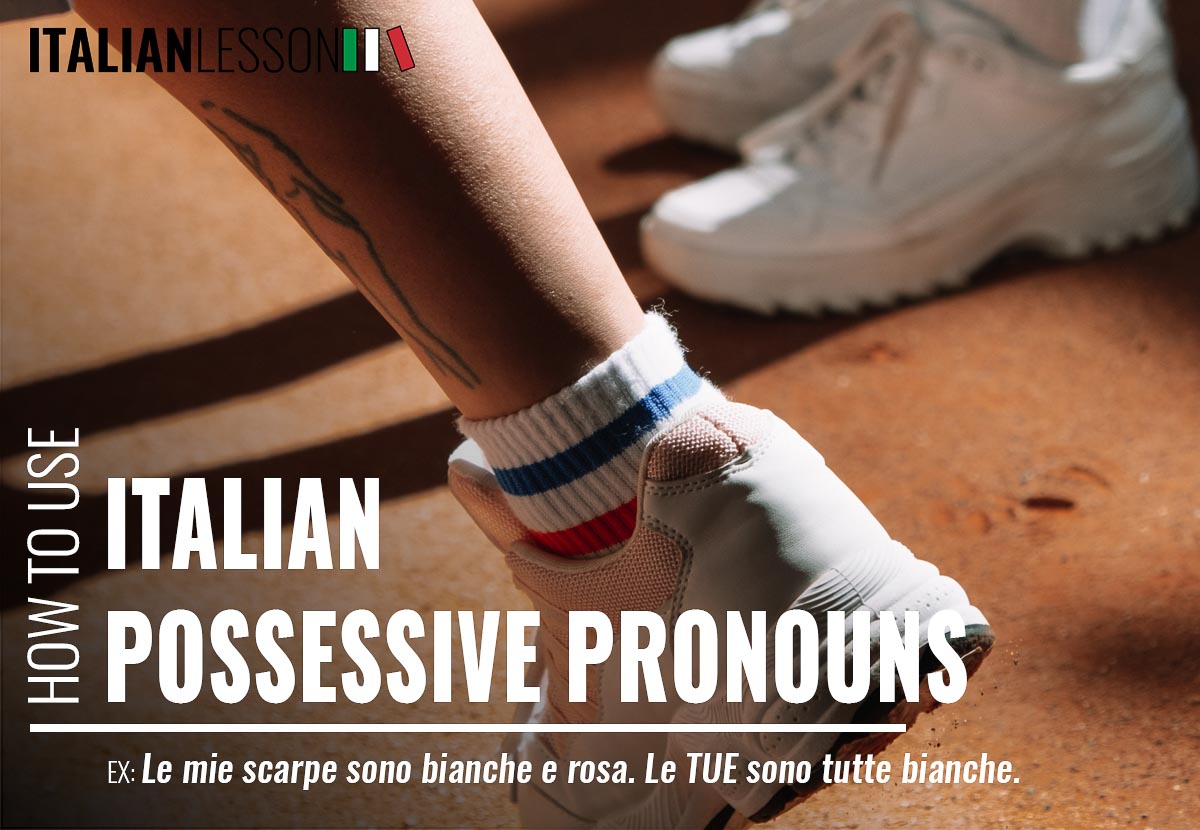
Italian possessive pronouns and a lovely pizza topped with pineapple.
If you find yourself reading this article it’s because you’re surely defending your lovely pizza topped with pineapple! You are trying in every way to convince an Italian to eat a pizza topped with pineapple but I’m sorry to tell you: you’ll never make it! To help you in this difficult task today I will explain a new rule of Italian grammar! Be ready to broaden your Italian vocabulary and also perfect your Italian pronunciation learning the Italian possessive pronouns!
Surely, in trying to convince an Italian of your point of view you will be using many words to express possession, such as: come on Giulio, our English version of pizza is really good!
Our, which in Italian translates as NOSTRO, is the element that we’ll analyze today in this article and which is defined as a possessive pronoun, another type of Italian pronoun.
Italian possessive pronouns
First of all, in Italian grammar, as well as in English, possessive pronouns express the possession of something and it is precisely for this function that they are closely linked to personal subject and object pronouns.
Here are links to the other articles about Italian pronouns:
Direct pronouns https://italianlesson.it/how-to/italian-pronouns/the-italian-direct-pronouns/
Indirect pronouns https://italianlesson.it/how-to/italian-pronouns/indirect-italian-pronouns/
Shortly, Italian possessive pronouns are
| SINGULAR | PLURAL | ||
| mio / a tuo / a suo / a nostro / a vostro / a loro | mine yours his / her ours yours theirs | mio / a tuo / a suo / a nostro / a vostro / a loro | mine yours his / her ours yours theirs |
Now let’s move on to the examples:
Le mie scarpe sono nere. Le tue sono gialle / My shoes are black. Yours are yellow.
I vostri impegni sono molto importanti. I nostri un po’ meno / Your commitments are very important. Ours a little less.
Il mio cappello è troppo bagnato. Puoi prestarmi il tuo? / My hat is too wet. Can you lend me yours?
As you will have noticed from the examples, Italian possessive pronouns are always preceded either by an article or by an articulated preposition.
Now stop everyone!
Did you know that in the large family of Italian pronouns, there are two other pronouns that fall into the category of possessives?
Well yes!
ALTRUI and PROPRIO are two poss. pron.
They correspond to the 3rd person singular, but they are… a little different from the usual canonical forms seen above!
ALTRUI indicates something owned by others and is rarely used as a pronoun:
Ho detto la verità per il bene altrui / I told the truth for the sake of others.
PROPRIO is used when the subject of the sentence owns something:
Non scambiatevi i libri: ognuno usi i propri / Don’t swap books: everyone should use their own.
Moreover, Italian possessive pronouns are also used alone:
I miei (genitori) sono usciti per andare al teatro / My parents went out to go to the theater
Lei dice sempre la sua (opinione) / She always speaks her mind
Alla nostra! / To us!
Lei è diffidente, infatti sta sempre sulle sue / She is wary, in fact she is always on her own (She’s shy)
In conclusion, after this nice roundup of Italian possessive pronouns, enjoy your studying!
Here is another in-depth study
See you soon!
